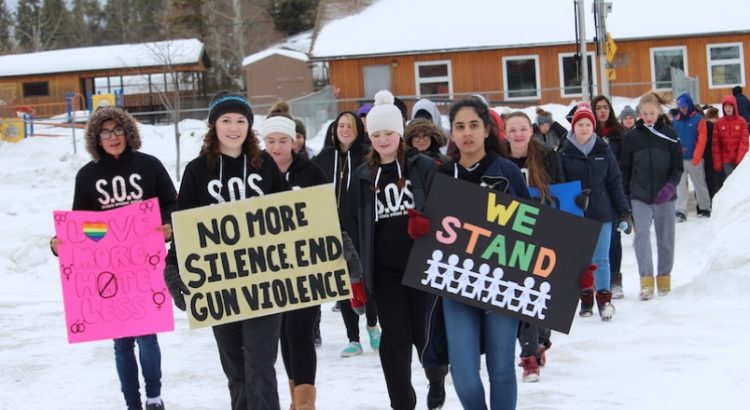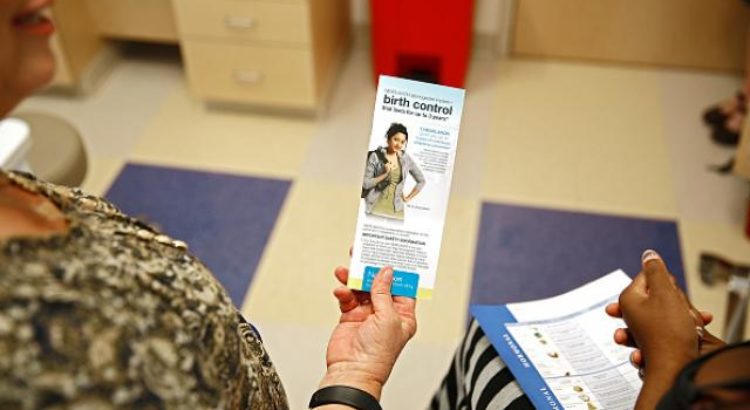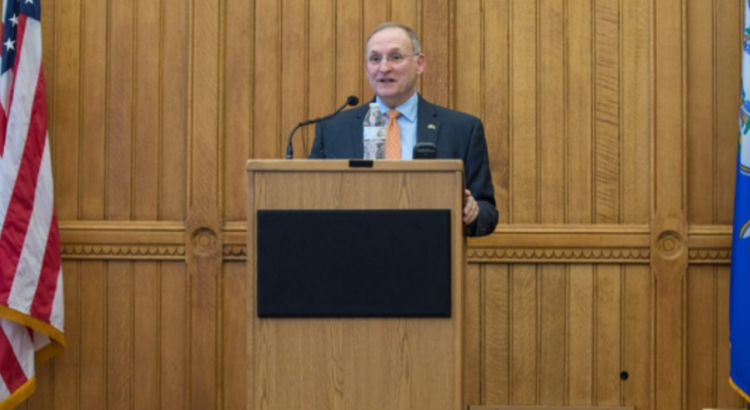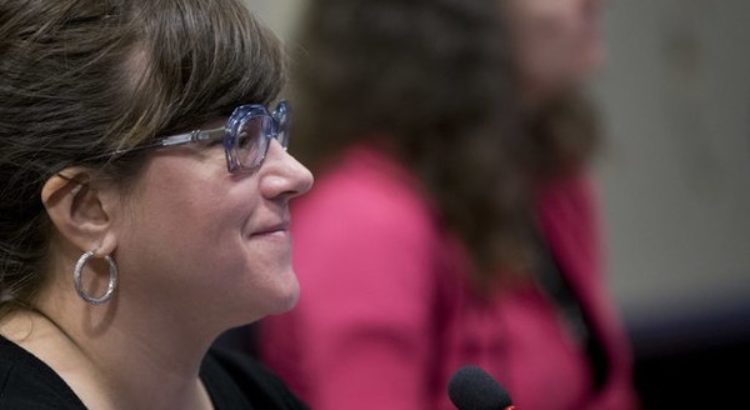Por: thompsoncitizen.net/Kyle Darbyson-Thompson Citizen/28-03-2018
While the crowd size didn’t compare to the hundreds of thousands who converged on Washington, D.C., Thompson’s March For Our Lives event still managed to attract a small but dedicated group of participants.
Just like the other 845 sibling marchers that took place throughout the globe March 24, this local walk, which began at R.D. Parker Collegiate, was designed to stand in solidarity with victims of gun violence in the United States.
Given that this was the northernmost March For Our Lives event to take place in Canada, the three-kilometre loop around Thompson Drive and Cree Road was littered with ice and snow.
Thankfully, the over 50 students, parents, teachers and volunteers who showed up for this event all dressed appropriately for the weather and completed the route without any traffic-related incidents.
Of course, this worldwide movement against gun violence in the U.S. largely kicked off in the wake of the Marjory Stoneman Douglas High School shooting in Parkland, Florida on Feb. 14, which left 17 dead.
Much like the how the Stoneman Douglas students spearheaded the central rally in the American capital, a local high school group from RDPC was responsible for organizing the only March For Our Lives event to take place in Manitoba.
Even though this group, Students Offering Support (SOS), normally focus their mental health awareness campaigns on their own school, on Saturday they shone a light on the struggles of students south of the border.
“The students in the U.S. are exhausted, and they do not want one more child to be shot at school,” said SOS member Hayley Jenkins just before the start of Saturday’s march.
“They do not one more teacher to make the choice to jump in front of a firing assault rifle to save the lives of students … they are taking charge and we are supporting them because we must stop letting this become the normal.”
While some have been quick to dismiss a movement that is largely lead by teenagers, SOS member Rishwan Dherdi reminded everybody at the March 24 rally that this campaign has already managed to garner some results.
Not only did the Florida State Senate recently raise the legal age to buy a firearm from 18 to 21, but they’ve also banned the sale or possession of bump stocks, attachments that allow a semi-automatic rifle to fire at a quicker rate.
Fellow SOS member Lala Rukh also mentioned that these students who are marching in the U.S. will be able to transform all this rhetoric into votes in a very short time.
“Those students, who will be 18 as of November of this year, are registering right now to be able to vote for the mid-term election and select their members of Congress,” said Rukh. ”These students are also reminding President Trump and his government that they will be the ones selecting the new [president] in 2020 in the new election.”
After finishing the march on Saturday, School District of Mystery Lake trustee Leslie Tucker echoed her comments from a March 13 school board meeting by saying that she was immensely proud of the youth activism on display here in Thompson and around the world.
In fact, Tucker said that the last time she witnessed student-led activism on this scale was during the South African Anti-Apartheid Movement.
“I remember being much younger, because that was a long time ago, and just fighting and fighting and fighting and eventually it changed,” she said. “So that’s what we do here. It might not change overnight for Americans with respect to gun control, but the pressure has to be put on.”
*Fuente: http://www.thompsoncitizen.net/news/thompson/thompson-hosts-northernmost-march-for-our-lives-event-in-canada-1.23214050












 Users Today : 62
Users Today : 62 Total Users : 35460445
Total Users : 35460445 Views Today : 107
Views Today : 107 Total views : 3419270
Total views : 3419270